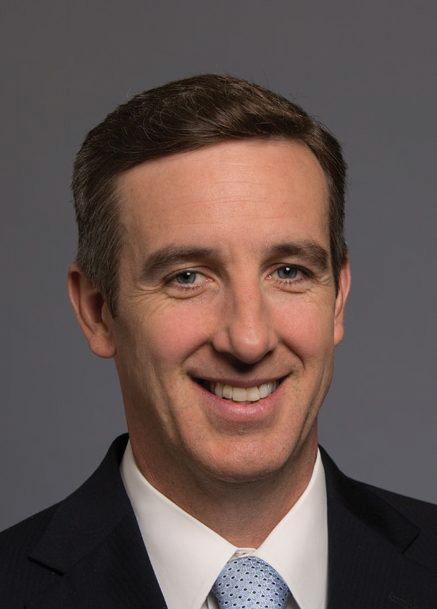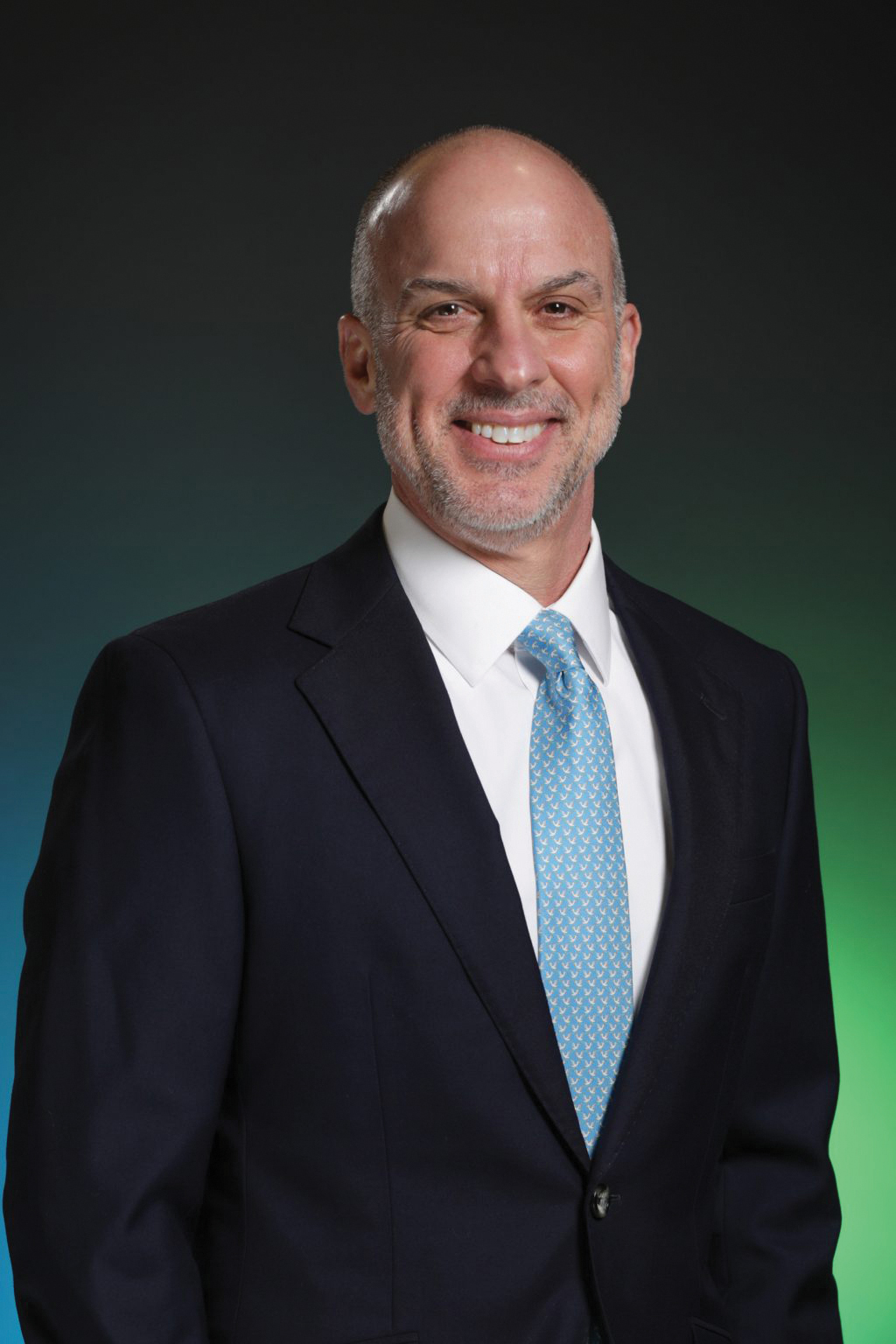

“I’m optimistic about the year ahead for a variety of reasons. At Norton Healthcare, we are focused on making quality health care available to all parts of our community. We believe that by expanding access and promoting health equity, we can improve the overall health of our region.
“In 2023, we are investing in a new hospital in West Louisville as well as our existing hospitals, technology, programs and employees, with the goal of removing barriers to care to improve health outcomes. Construction on the Norton West Louisville Hospital will begin in the spring. When it opens in 2024, it will be the first hospital in that area of our community in more than 150 years. The hospital will provide preventative, specialty and emergency care to one of the most underserved parts of our city. Health equity is a key part of our mission and is worthy of significant investment. Every person, in every neighborhood, should have opportunities to get the health care they deserve.”

“2023 is poised to be a transformative year in health care. UofL Health has three major construction projects underway: UofL Hospital’s new patient tower, the transformation of our medical center in Bullitt County into a full-service hospital, and a new rehabilitation hospital (in partnership with LifePoint Health) on Louisville’s east end. Together they will help increase access to critical services for underserved populations, the Greater Louisville area and specialty care for the entire state. Like many industries, workforce development continues to require significant attention, which is why UofL Health is now paying the full tuition to UofL for employees and their families. It is an investment in our team and our community.”

“There will be challenges to face in 2023, there’s no doubt about that. But the U.S. economy always finds a way to persevere. There are a lot of unknowns—like what’s going to happen with housing—but I think there are a lot of silver linings headed our way, too.
“In health care, workforce continues to be a challenge. Finding ways to combat the ongoing nursing shortage is key and we’re looking into lots of different options. We’re also continuing to see the residual effects of delayed preventive care during the COVID-19 pandemic. There are big increases in cancer diagnoses, especially in breast cancer and other areas where screenings were put off for a time.
“We expect capital spending to be up as we recently broke ground on a new medical office building in Georgetown and we continue to make investments that support our mission of “Making Communities Healthier.” Staffing will also increase across the Central Kentucky market at Bourbon Community Hospital, Georgetown Community Hospital, Bluegrass Community Hospital and Clark Regional Medical Center as we expand existing service lines and launch new ones.”

“On a scale of 1-10, we expect the Kentucky/U.S. economy to be at 5. With the uncertainty of many variables such as inflation, energy prices and escalating wages, it is difficult to be either optimistic or pessimistic about the economic outlook for 2023. I take a more moderate view—I don’t think the bottom will fall out but don’t think we will bounce back to a strong recovery either. The inflationary pressures that health care continues to experience are extreme and outpace any foreseeable reimbursement changes. It’s going to be another tough year for health care in 2023, and I anticipate health systems continuing to make tough decisions around service rationing and facility closures. Capital availability will be down based on lower margins and investment performance for health care. Staffing will be status quo for 2022, which means we will continue to compete from a limited pool for our labor force. I don’t anticipate an appreciable change in the availability of staff, including trained nurses and clinical specialists.”

“On a scale of 1-10, we expect the Kentucky/U.S. economy to be at 7 to 8. Rising expenses, inflation and workforce shortages will make 2023 a challenging year, but we are confident we will work through it. Within our sector, more than half of the hospitals across the nation are projected to have negative margins for 2022. The issues of workforce shortages, supply disruptions, rising expenses, reliance on higher costs of agency labor, and lagging investment performance that impacted 2022 will continue into 2023. It appears there will continue to be intermittent spikes of COVID. Health care organizations continue to work through delayed demand. I am feeling optimistic and confident that our strategy and operating initiatives will continue to be key to countering the impact of these industry trends. Regarding capital spending and staffing, our commitment to our almost $1 billion investment of capital over recent years to improve and increase access is still on track. Our capital spend will remain unchanged for 2023.”
“There are so many variables at play, but I am optimistic about the outlook for Kentucky and the national economy. Actions by the Federal

Reserve figure to slow the rate of inflation, which has been such a burden on families and businesses in 2022. In addition, business leaders like myself continue to invest in our people and new growth opportunities.
I am excited for the prospects for downtown Louisville. We decided to make Louisville the home of ScionHealth because of this city’s tremendous talent and infrastructure in the health care sector. I believe—and many of my colleagues leading health care organizations agree—that Louisville is an epicenter for health care and aging-care innovation, with representation from all corners of the industry: acute-care and post-acute care providers, insurers, technology companies, academic researchers, and nursing schools and other health professional schools.
“The biggest challenge facing hospital companies in 2023 will continue to be the high cost of staffing, particularly in contract nursing, which was necessary to fill nursing shortages resulting from the pandemic but is unsustainable over the long term. We must continue to find attractive ways to recruit and retain excellent nurses and other caregivers who can provide great care and stability within our teams. While I believe the high cost of labor we’re experiencing today will moderate, our cost structure has increased, which will force us to find more efficient ways to deliver high-quality care by leveraging technology and challenging legacy operating models.”
“For 2023, ScionHealth is excited to be in a position for growth. We have reached a definitive agreement to acquire Dallas-based Cornerstone Healthcare Group, which will expand our network of specialty hospitals to 76. We are also entering the Orlando, Florida, market by building two specialty hospitals that will open in a few years, and we continue to invest in creating state-of-the-art inpatient rehab units in several of our specialty hospitals. We have increased capital spending to bring the best technologies, such as surgical robots, into many of our community hospitals. We intend to continue to invest and seek new opportunities. We are hopeful that in 2023 we can begin to mitigate the staffing costs that have been such a strain on our industry.”

“On a scale of 1 to 10, the Kentucky/U.S. economy is at a level of 5. For the health care sector itself, we rate this at a 2 to 3. The economy is plunging in health care until we can control costs and increase staffing levels sufficiently to take care of the market needs. We have an incredible demand for services, but unprecedented labor shortages persist. Our health care capital spending continues to rise with unparalleled levels of salary, wages and benefits, and staffing continues to be an issue. However, we are seeing some of the pressure on this issue dissipate.”



















